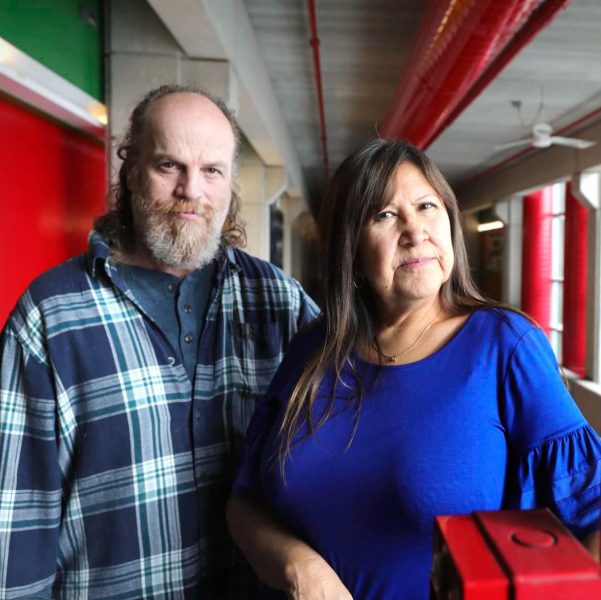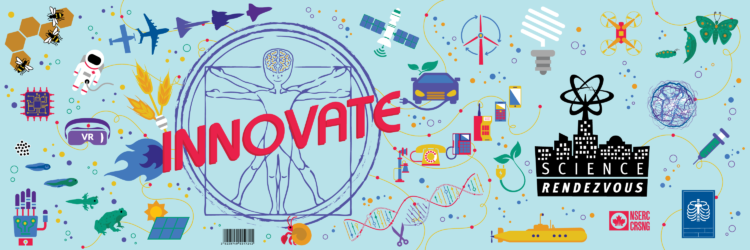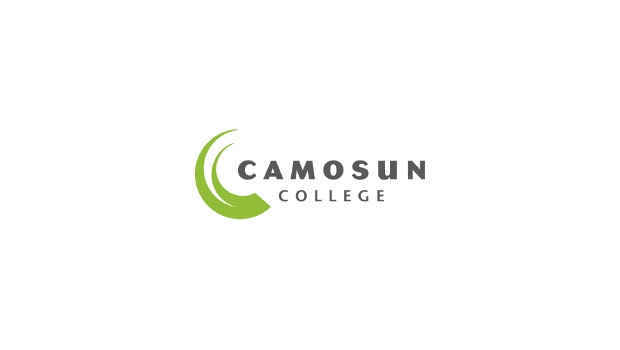The University of Manitoba is a proud Science Rendezvous partner that has co-run amazing Science Rendezvous events every year with the University of Winnipeg. They have excited children and adults alike with Chemistry Potions classes, Physics Adventure shows, the science of magic tricks and whimsical musical instruments! Beyond being a dedicated Science Rendezvous partner, the University of Manitoba is also part of the global response to COVID-19.
Taking a multidisciplinary approach, the University of Manitoba is involved in a range of research that will contribute to combatting the pandemic, from biology and mathematics to Indigenous-led response to pandemics.
One potential approach comes from the innovative international team led by Dr. Ned Budisa of the Department of Chemistry. His team of Winnipeg and Berlin researchers have developed nanoparticles that envelop viruses so that they can’t infect the host cell, which may be a potential treatment against seasonal influenza, bird flu, and possibly COVID-19. These biodegradable, non-toxic nanoparticles could only have been produced through the collaboration of biologists, chemists, physicists, virologists, physicians, and imaging scientists.
Another collaboration making important progress against COVID-19 is between Dr. Brian Mark of the University of Manitoba, Dr. Sachdev Sidhu of the University of Toronto and Dr. Roman Melnyk of the Toronto Hospital for Sick Children. “In fact, coronaviruses are quite well understood as far as how they’re comprised and how they replicate,” Mark told CBC, “but there’s still a significant amount of research that needs to go into developing a strategy to routinely make vaccines against them.” So they’re searching for weaknesses in the molecular biology of the COVID-19 virus. Any weaknesses can then be targeted for developing antiviral drugs and vaccines. One of the 47 groups to receive federal COVID-19 research funding, the team is both working to identify a protein critical to the replication of the virus and to potentially repurpose existing drugs to treat COVID-19.
As critical as treatments and vaccines are to combatting COVID-19, modelling the virus plays an important role in controlling the spread. Various researchers at the University of Manitoba are also studying the virus from a modelling perspective.
Dr. Julien Arino, a mathematician who also received a grant, is working to determine whether community transmission of the virus can be modeled accurately. The goal is to evaluate the data to determine the impact of measures such as travel restrictions, increased isolation, and physical distancing. His team is part of a large study led by the Fields Institute for Research in Mathematical Sciences, in collaboration with other institutes, international partners, and the Public Health Agency of Canada. Dr. Liqun Wang from the Department of Statistics is also developing models to predict the spread of COVID-19.
Turning modelling into real-time and public-oriented, Pourang Irani, Professor of Computer Science is developing a self-reporting app to track the outbreak. Users will be able to choose how specifically they wish to share their location with health authorities. Irani says that the intent of the app is “to provide information and get to the point that if someone gets sick, health authorities can track back and look at all the potential cases and take appropriate measures.” With a better idea of the spread, the location of hotspots and who may be infected, health authorities can then help policy-makers manage an outbreak with real-time information.
Another very important aspect of COVID-19 research is to consider how this outbreak, as well as past and future ones, affects certain communities. “When we prepare for a pandemic,” says Indigenous Scholar from the Department of Chemistry, Myrle Ballard, “we have to consider the cultural factors as well, because of our teachings.” Ballard, along with environment professor Stéphane McLachlan, received $1 million in federal funds to conduct real-time research on Indigenous communities’ response and lessons from past outbreaks. During the H1N1 swine flu outbreak, some Indigenous communities were hit particularly hard while some remote communities resisted the virus. But McLachlan says that these communities were never asked about their response and what can be learned from it. “We can see some communities that did adapt, that did respond well, and that were able to do things differently, that met their own needs.”
There are many avenues the University of Manitoba is taking in the global effort against COVID-19. With the tireless efforts of researchers such as those at the University of Manitoba and many more across Canada and the world, we’re seeing the invaluable importance of science and technology in responding to global crises.



































